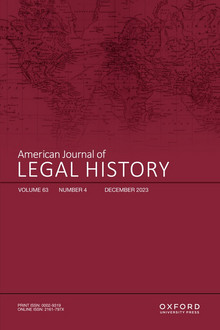Han-Ru Zhou, « International Legacies of a Century and a Half of the Case Method », (2023) 63 American Journal of Legal History, p .402-422
Résumé en anglais uniquement :
Save the Constitution, the United States’s most famous legal export may well be the case method. This article pieces together the story of how CC Langdell’s brainchild was brought to the rest of the common law world in treading the momentous events and geopolitics of the last century and a half, and reflects on the lessons from this global experiment for the present and future of the case method. After initially attracting little attention overseas, the rise of the case method encountered its watershed in the post-war period. From then on, the method’s further expansion branched into two narratives: one in the Western world and the other in the former British African, Asian, and Caribbean colonies. The overseas experiments with the case method yielded some durable successes and cast a light on its singular ability to adapt to widely different environments. But mostly the picture is one of mixed results, especially outside the Western world, owing to a failure to devise an educational program adapted to the varying local circumstances. As with law itself, the teaching of law is inextricably tied to local idiosyncrasies and world politics, thus making the future of the case method as difficult to predict as it would have been for Langdell and his contemporaries. Today’s different national and international contexts from that of 1945 represent an opportunity to reassess the merits of the case method in our more mature legal and educational environments, freed from colonial and neocolonial agendas.











